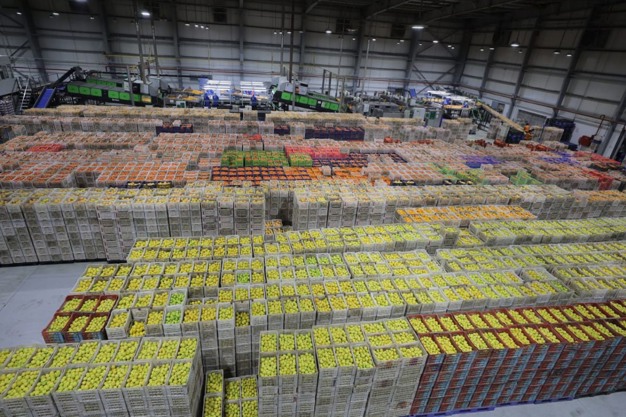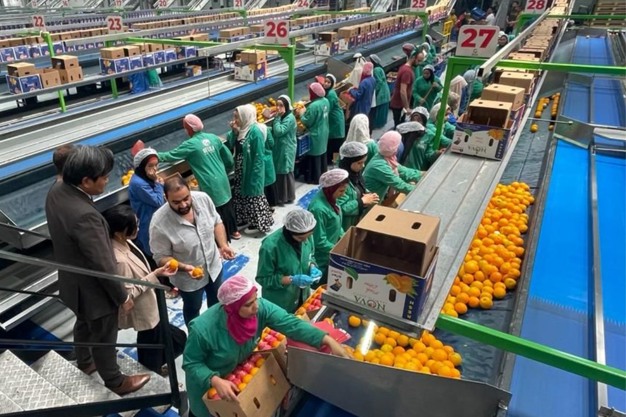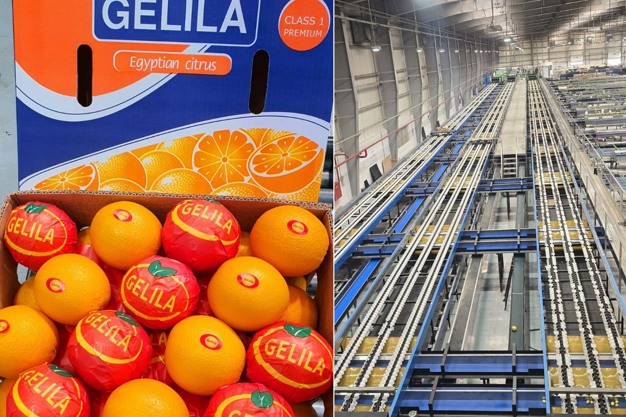The Egyptian General Authority for Export and Import Control has published the official results of the 2023/2024 Egyptian citrus season. For the first time, export volumes exceeded the two-million-tonne mark, while prices fell. Eslam Gelila, CEO of Gelila, comments on the figures.
2.3 million tonnes exported, for USD 1.1 billion
Citrus export volumes reached 2,391,145 tonnes, including 1.93 million tons of oranges, and 147 thousand tons of lemons, an increase of 21% compared to the 2022/2023 season. Gelila says: "This is another record performance for the Egyptian citrus sector. We were able to achieve this record volume thanks to a massive increase in production, of around 25% compared to the 2022/2023 season, and to the steady rise in global demand."

Unsurprisingly, the value of exports did not increase at the same pace as volumes, rising from 0.9 to 1.1 billion dollars, representing a drop in value per tonne from 497 to 474 USD. "The season would have been much better if we hadn't been impacted by the Red Sea crisis," says Gelila. The abundance of supply, faced with major logistical complications in Asia, naturally led to a price drop in most of our markets."
Decline in exports to Asia
Egyptian citrus exports to Asia have generally fallen, but not with the same intensity. India, one of the main destinations for Egyptian oranges, has reduced its imports from Egypt by 10%, from 121,000 tonnes in 2022/2023 to 108,000 tonnes in 2023/2024. Volumes in Malaysia fell by 12% and in Singapore by 4.6%. By contrast, Egyptian orange exports to Bangladesh fell by 30%, to China by 27%, to Hong Kong by 63% and to Vietnam by 62%. Gelila comments: "This is the obvious impact of the Red Sea crisis, which began at the very start of the season. Transit time increased considerably for all destinations, reaching up to 90 days for China. However, customer behavior has not been the same."

In China, for example, buyers turned to South African oranges, while India maintained strong demand for Egyptian oranges. Exports to Bangladesh were affected by the country's unstable economic and political situation, while Vietnam only imports during a small window of the year, and it was missed. In the rest of Asian markets, the situation depends on the buyers: some are willing to take risks, others to skip oranges. That's why the drop in exports to Singapore was only 4-5%, while it was 63% for Hong Kong. In addition to logistical complications, each market has its own cultural and economic specificities which have an impact on the choices of its buyers."
Higher demand for Egyptian citrus in Europe
In Europe, exports of Egyptian oranges increased massively. Spain increased its imports of Egyptian oranges by 17%, from 89 thousand tonnes to 104 thousand tonnes. In France, the year-on-year increase was 86%, 76% in the UK and 37% in Ireland. Gelila: "This is the trend that should have been the norm if there had been no crisis. Climate change gives Egypt a clear competitive advantage, and global demand has never been so strong. It must also be said that prices for Egyptian oranges have been artificially lowered due to the Red Sea crisis and the oversupply in Europe, which contributes to the increase in exports. But overall, if European markets can absorb so much volume, it's because there's demand".

The Netherlands, Russia, and Saudi Arabia remain the top three importers.
The trio of most important destinations for Egyptian citrus has not changed, with the Netherlands in first place, whose imports of Egyptian oranges rose by 7.15%, followed by Russia with a 35% year-on-year increase, and Saudi Arabia with 25%. Together, these three destinations absorbed 760,000 tonnes of Egyptian oranges in 2023/2024, compared with 620,000 tonnes the previous season.
New markets
The difficulty of reaching Asian markets has prompted Egyptian exporters to knock on other doors. Exports of Egyptian oranges to Canada rose by 177%, to Poland by 117%, and to Brazil by 137%. Overall, some countries that used to import very few Egyptian oranges considerably increased their orders last season, in Eastern Europe, the Americas, West Africa, and Central Asia. According to Gelila, these countries are discovering Egyptian oranges through circumstantial demand, but are likely to become stable destinations.

The local market absorbed huge quantities
On the local market too, demand has been very dynamic. "We mustn't forget that the Egyptian people are avid citrus eaters", says Gelila, "and in addition to fresh consumption, several orange juice concentrate factories are present in Egypt, two of which were launched last season. The citrus processing industry is booming in the country, which will boost demand in the local market. On the local market only, 3.5 to 4 million tonnes of citrus were consumed last season."
"At Gelila, we are proud to have contributed to the success of the season, occupying fourth place among the leading exporters, with 51,000 tonnes. We have recently invested in a new line which will increase our export capacity to 900 tonnes per day and will be operational in two weeks", concludes the exporter.
For more information:
Eslam Gelila
Gelila
Tel. +20 100 000 4540
Email: [email protected]
www.gelila-eg.com









